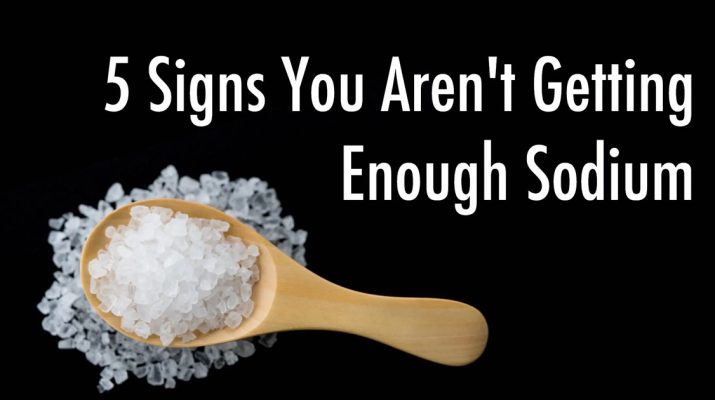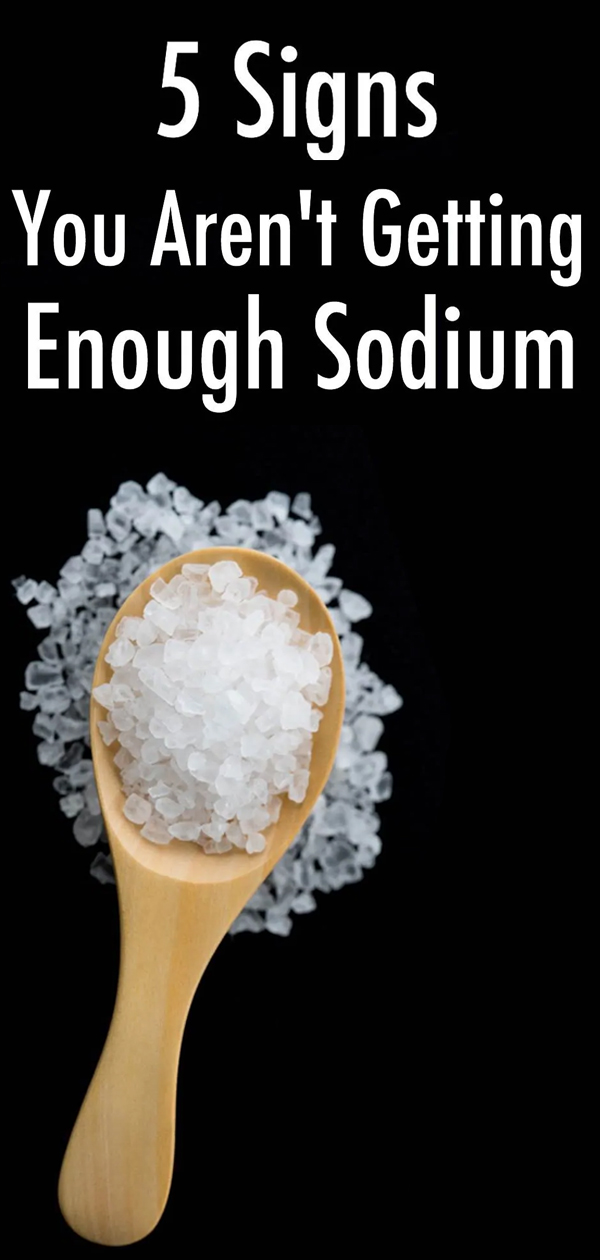Your body is essentially a big bag of saltwater which requires constant balance to keep you alive. Too much or too little sodium in your diet can have adverse effects on your health.
If you eat too much, which most Americans do, it can lead to things like heart disease, stroke and arteriosclerosis which is a big word for hardening of the arteries. The thing is, your body needs sodium to function. Sodium is integral to the well-being of your circulatory system and maintains the plasma in extracellular fluid to allow for sufficient tissue perfusion.
It essentially allows nutrients and other materials to move into your cells from the blood vessels and allows the cells’ waste products to pass into the bloodstream where it can be filtered out by the liver and kidneys.
Sodium and chloride ions are also involved with the functioning of neurons within our nervous system. They facilitate the passing of messages from one neuron to another which enables us to walk, breathe, think and talk. Chloride ions are also involved in the body’s digestive processes by forming hydrochloric acid.
The recommended daily intake of sodium by the American Heart Association is 1500 mg of sodium, while the minimum necessary to maintain life is around 500mg. The average American consumes over 3000 mg, which is at least twice the recommended daily allowance.
If a true sodium deficiency occurs, it causes very specific symptoms of hyponatremia. You’ll likely experience the following symptoms if you have too little sodium in your body.
5 Signs You Aren’T Getting Enough Sodium
Nausea and Vomiting
This is your body’s way of getting rid of some excess water which is causing an imbalance in your sodium levels.
Headaches
Your nervous system needs sodium to function, and when levels drop, it will cause headaches.
Confusion
Your brain needs salt to send messages through its neurons. Without the salt, your brain won’t function correctly and could cause confusion.
Fatigue
If your blood sodium levels are off, then your blood’s ability to deliver nutrients and take away waste from your muscles is hampered. This could cause fatigue, as your muscles just aren’t getting the energy they need to function.
Muscle weakness, spasms or cramps
If your muscles are not able to get rid of waste products, like lactic acid because of your low blood sodium levels, then those waste products stay in the muscles causing cramps, spasms and weakness.
Hyponatremia can be caused by drinking too much water, especially during endurance sports, which lower the overall level of sodium within the body. While engaging in endurance sports, you are also losing some salt through sweating, which further decreases the body’s sodium level. Dehydration can also cause low sodium levels, as you are losing salt through sweat and urine without replacing it, either with a sports drink with electrolytes or fruit and vegetable juices, which also have salt content.
Low sodium levels can also be caused by consuming diuretics, antidepressants, and pain medication, which could cause you to sweat or urinate more than normal. Heart, kidney and liver problems can cause you to retain fluid, thereby affecting the salt to fluid balance within the body. Hormonal changes through diseases like Addison’s, which affect the adrenal glands and help regulate the levels of sodium, potassium and water, can lead to low sodium levels. Low thyroid levels can also cause low blood-sodium levels.
The drug Ecstasy can cause fatal cases of hyponatremia when combined with drinking and dancing, which all affect the levels of blood sodium.
Acute Hyponatremia, where the blood sodium levels drop dramatically in a very short amount of time, can lead to brain swelling, coma and death.
The best way to avoid this is to monitor how much salt you take in and how much water you drink on a daily basis, but especially when engaging in endurance sports. If your urine is clear, then you are drinking too much water and if you are engaging in strenuous endurance sports, then drink a sports drink with electrolytes along with your water to help replace any lost salt.


